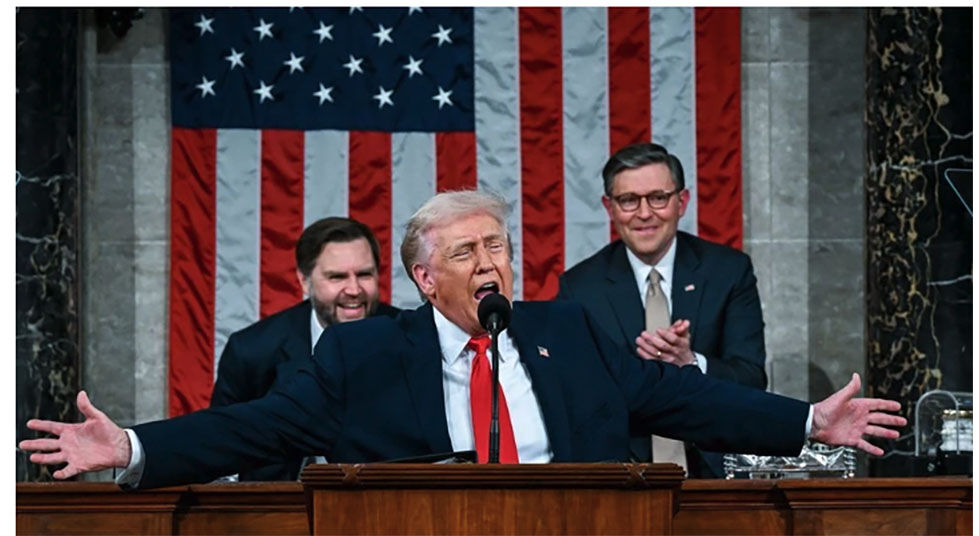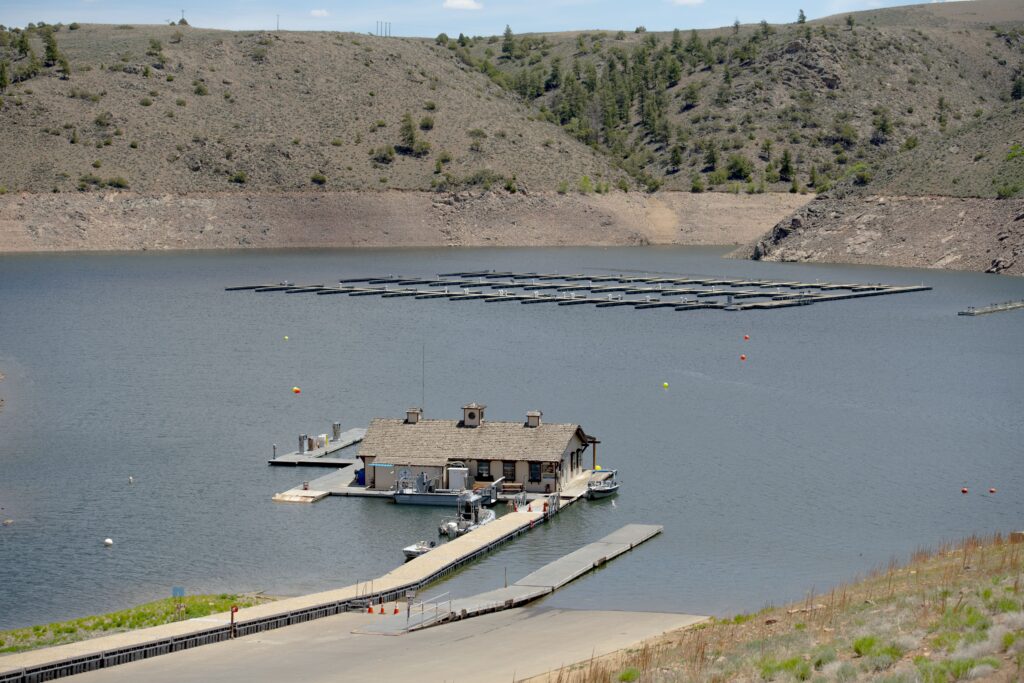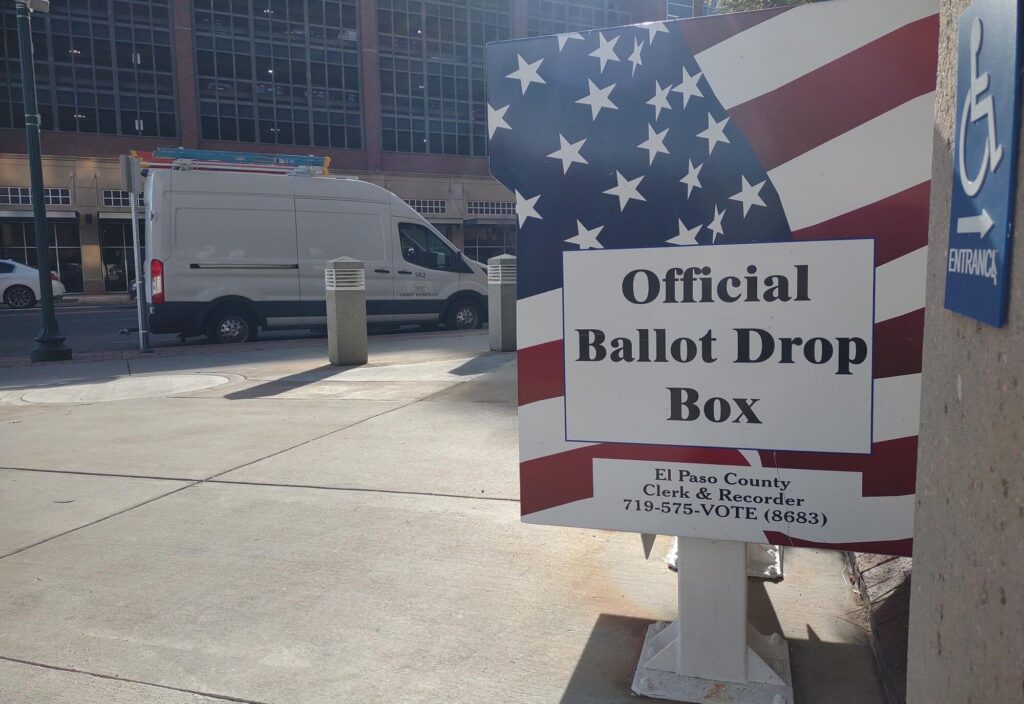USPS opposes bipartisan ZIP code legislation: ‘Would significantly degrade mail service’
The U.S. Postal Service opposes two House bills that propose to add 76 new ZIP codes across the country, citing a financial burden and harm to mail delivery service.
On Monday, H.R. 672, proposed by Rep. Mario Díaz-Balart, R-FL, and H.R. 3095, proposed by Rep. Lauren Boebert, R-CO, passed. These two pieces of legislation, cosponsored by members across the aisle, hope to add new ZIP codes to assist smaller communities with faster mail times, first responder responses, and increased sales taxes.
The areas that would get a new ZIP code in Colorado include Castle Pines, Centennial, Cherry Hills Village, Frederick, Greenwood Village, Highlands Ranch, Keystone, Lone Tree, Mountain Village, Mt. Crested Butte, Severance, Silver Cliff, Sterling Ranch, Superior, and Telluride.
Díaz-Balart’s legislation passed by voice vote, and Boebert’s passed by a 278-121 vote. In the bills, USPS is designated to implement the new postal codes. However, the agency told the Washington Examiner that it opposes the legislation.
“These changes to ZIP Codes would significantly degrade mail service in the affected communities and cause pervasive, chaotic service disruptions in the communities affected, and some around them,” Martha Johnson, a senior public relations representative at USPS, said.
Johnson said requests to change to ZIP codes are “almost never related to improving or considering mail delivery,” and are often “not considered or understood by the broader community that is impacted.”
Instead, USPS said these pieces of legislation are motivated by “third-party reliance on ZIP Codes, such as for tax collection, insurance rates, community identity or other non-mail considerations.”
ZIP codes are generally based on the physical location, often the local Post Office, that houses the delivery unit from which letter carriers deliver, according to USPS. Changing ZIP codes through legislation without input or analysis from USPS could change which facility handles residents’ mail before delivery.
USPS says the proposed ZIP code changes may require different transportation routes for delivery trucks and facilities for letter carriers, costing the agency significant additional costs.
“Such changes would also add significant, ongoing operational costs and complications to the self-financed Postal Service at a time when strong pressure exists for the Postal Service to financially break even,” Johnson said.
USPS said external pressures from declining mail volume and inflation have strained the agency’s ability to invest in internal improvements.
In March, former Postmaster General Louis DeJoy announced that USPS would eliminate 10,000 positions through its early retirement program. Additionally, as part of a 2021 initiative and with assistance from the Department of Government Efficiency, the agency would move forward with eliminating 30,000 positions.
USPS created a “two-phase” initiative to release changes regarding delivery times. The first phase began April 1, and the second started July 1.
“As with mail, most competitive shipping products will retain the same service standard, some packages will have a faster standard, and some will have a slightly slower standard,” a USPS report said.
As of July 13, delivery service costs increased by an average of 7.4%, including the cost of mailing letters and postcards, which increased by $0.05.
In a May letter sent to Oversight and Government Reform Chairman James Comer, R-KY, Peter Pastre, the vice president of government relations and public policy at USPS, listed his concerns about the legislation and gave alternative ways the agency could move forward.
“I am pleased to report that we were able to favorably resolve the communities’ requests through an accommodation that allows customers to use their preferred city name in combination with their existing ZIP Code,” Pastre said in the letter. “We are also currently working on legislation that would direct the Postal Service to issue a rule requiring us to work with individual communities to find satisfactory ZIP Code accommodations, likely with a preferred or alternative city name. This would resolve many of the problems identified by these cities and towns without harming delivery or increasing costs.”
While the two bills passed in the House, they still need to pass in the Senate. A date for the vote has not been decided yet.
This is not the first proposed ZIP code upgrade. In December 2024, Boebert’s previous version of the ZIP code bill passed unanimously in the House. However, the bill lost momentum, and the Senate session ended before lawmakers could vote.
Boebert’s 2025 bill includes 17 more districts than her original plan, with eight other districts proposed by Diaz-Balart.
Why are ZIP codes important?
The ZIP code system was implemented in the U.S. in the 1960s. While it’s utilized by the Postal Service to deliver mail, economic developers, insurers, and emergency personnel also rely heavily on ZIP codes.
Boebert’s office told the Washington Examiner that first responders have slower response times in the affected areas, businesses go through the wrong city or town for permitting, sales tax revenue from online sales is miscalculated, and mail gets to residents slower.
“Residents in these communities will see clear benefits through a unique ZIP code for their town, from more of their tax revenue staying and benefiting their communities to improving the response times of first responders, which could save lives and reduce crime,” Boebert said in a press release. “We haven’t had an updated ZIP code bill pass through Congress in almost two decades.”
In 2006, former Rep. Tom David’s, R-VA, “Postal Accountability and Enhancement Act” became a law, requiring the USPS to assign new ZIP codes to four Ohio, South Carolina, and California communities.
If a town or community is experiencing ZIP code problems, it can petition the USPS for a new code, but it is rarely approved. If the petition is denied, the community cannot appeal the decision for up to 10 years.
In the past nine years, Diaz-Balart has proposed five provisions to add new ZIP codes, but none have passed in the Senate. He said in a press release that the issue is long overdue, and is “affecting funding for vulnerable populations like seniors,” creating inaccurate census data, and confusing voters at election polls due to “unclear precinct assignments.”










